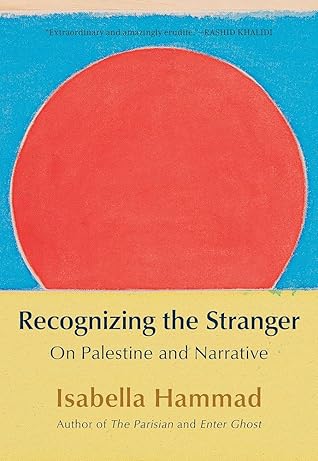More on this book
Community
Kindle Notes & Highlights
“Gaza does not propel people to cool contemplation; rather she propels them to erupt and collide with the truth.” —Mahmoud Darwish
The flow of history always exceeds the narrative frames we impose on it.
we hope for resolution, or at least we hope that retrospectively what felt like a crisis will turn out to have been a turning point.
He chose to read the so-called canon “contrapuntally”—a helpful Saidian term—rather than disavowing texts written in previous eras out of retrospective feelings of disgust, based on what he saw as their implication in systems of oppression and domination.
Novels reflect the perpetuation of a human impulse to use and experience narrative form as a way of making sense of the world.
the novel being a revolutionary form because it “is in essence a question mark.” Perhaps a writer doesn’t need to have a clear sense of what her text will do in the world. Perhaps a writer can relax a bit. Perhaps it’s enough to ask a question, and hope, perhaps, to glimpse the meaning of that question in retrospect.
And he gave the word anagnorisis to the moment when the truth of a matter dawns on a character, that moment toward which a plot usually barrels, and around which a story’s mysteries revolve.
Aristotle describes anagnorisis as a movement from ignorance to knowledge. When a character realizes the truth of a situation they are in, or the truth of their own identity or someone else’s, the world of the text becomes momentarily intelligible to the protagonist and thus also to the audience.
Individual moments of recognition are repeatedly overwhelmed by the energy of a political establishment that tells the onlooker: this is not what it looks like. It is too complicated to understand. Look away.
In layman’s terms, an epiphany is a eureka moment. But in literary art, we associate epiphany primarily with the short story form rather than with the novel,
It’s more often a disclosure that knowledge itself is precarious. Some meaning may arise, precipitating the ending, but it does not mean closure.
I like this idea of breaking into the awareness of other people by talking candidly among ourselves.
What I learned through writing this book is that literary anagnorisis feels most truthful when it is not redemptive: when it instead stages a troubling encounter with limitation or wrongness.
This is the most I think we can hope for from novels: not revelation, not the dawning of knowledge, but the exposure of its limit. To realize you have been wrong about something is, I believe, to experience the otherness of the world coming at you. It is to be thrown off-center. When this is done well in literature, the readerly experience is deeply pleasurable.
The Israeli government would like to destroy Palestine, but they are mistaken if they think this is really possible. Palestine is in Haifa. Palestine is in Jerusalem. Palestine is in Gaza and Palestine is in the Mediterranean Sea and Palestine is alive in the refugee camps, from Shatila to Yarmouk. Palestine is even alive and well in New York. Do they really believe they can obliterate the Palestinian will to life?


